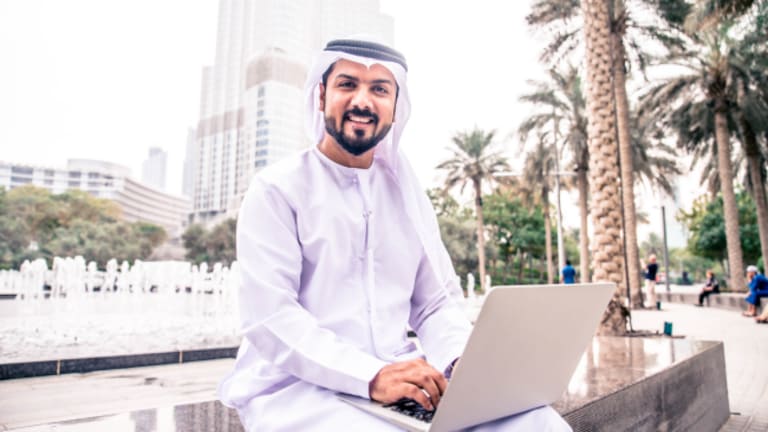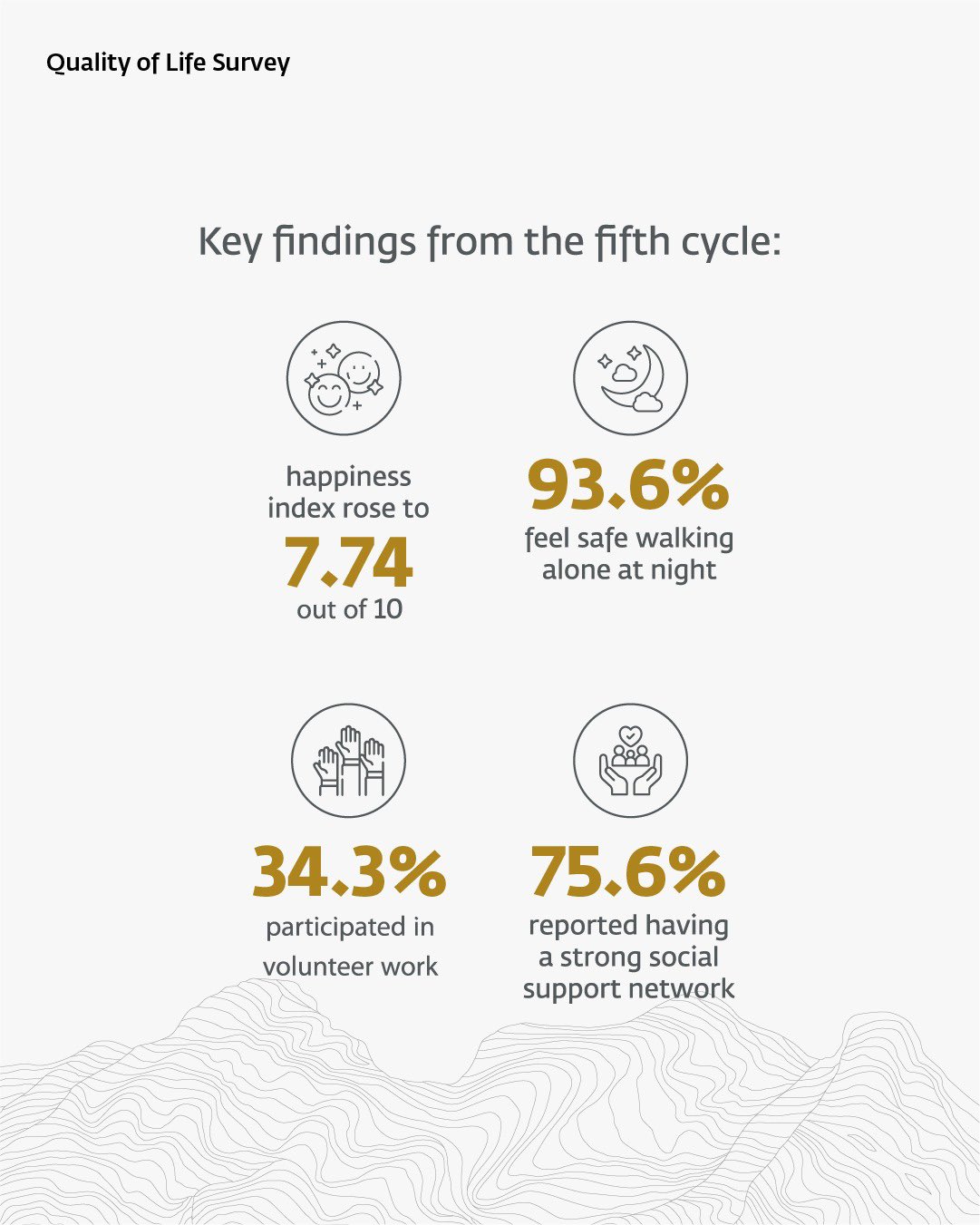
Long working hours, yet Abu Dhabi residents are happy: DCD survey
Culture#EmployeeExperience#HRCommunity#Wellbeing
About 77.4% of Abu Dhabi residents reported high levels of happiness in the Department of Community Development’s latest survey.
The survey titled, ‘Quality of Life Survey,’ is fifth edition of DCD’s annual survey, and features insights of over 1,00,000 participants from 190 different nationalities residing in Abu Dhabi. It covered key parameters of quality of life such as work-life balance, job opportunities, salary & perks, education skills, healthcare, and personal safety and security.
Other parameters included social relations, civic participation and governance, environmental quality, social and cultural cohesion, social and community service, digital happiness, and wellbeing.
The key findings from the survey report are:

Safety and security: An impressive 93.6% of residents said they feel safe walking outdoors, even at midnight. This highlights why the emirate ranks at top among the world’s safest cities in 2025, with a safety score of 88.4%.
Happiness: With 77.4% of residents reporting high levels of happiness, Abu Dhabi remains the happiest for the third consecutive year. Last year, the happiness score stood at 76.3%.
Work-life balance: A majority of participants reported that their working hours exceed the OECD average of 37.4 hours per week. In Abu Dhabi, the private sector follows a standard 48-hour workweek, typically consisting of 8 hours per day over 6 days. This aligns with the working hours defined under Federal Decree Law No. 33 of 2021. These findings highlight the need for strategies that promote a healthier balance between personal and professional life, enabling residents to maintain a high quality of life.
Job opportunities: On a positive note, employment rates in the region have risen above the OECD average of 70.2%, along with a higher workforce participation rate. This underscores Abu Dhabi’s commitment to enhancing talent development and expanding economic opportunities.
Social life and community: Around 75% of participants indicated that they have a strong social support network. This underscores the importance of social balance in life, which is also emphasised in the UAE’s Year of Community initiative. “The volunteering participation rate reached 34.3 per cent, reflecting a strong community spirit among residents,” the report stated.
Digital transformation: The survey also revealed an improvement in digital wellbeing, with residents reporting ‘easy and efficient access to digital services.’ However, they also expressed growing concerns about the ‘psychological effects of technology’, underlining the need for balanced policies that support both mental health and social interaction in the digital age.
DCD shared, “The findings go beyond measuring where we are today; they shape our strategic plans and future vision, guiding initiatives that support sustainable social development and uphold Abu Dhabi’s global standing in providing a high quality of life, now and for generations to come.”
تمثل نتائج الدورة الخامسة لاستبانة جودة الحياة صوت المجتمع لفهم أعمق وتعزيز مستمر لرفاهية مجتمع إمارة أبوظبي.#هذا_هو_مجتمعنا #دائرة_تنمية_المجتمع #عام_المجتمع #يداً_بيد #أبوظبي #الإمارات pic.twitter.com/i6qgL8eAqX
— دائرة تنمية المجتمع -أبوظبي (@DCDAbuDhabi) May 28, 2025
Her Excellency Eng. Shaikha Alhosani, Executive Director of the Social Monitoring and Innovation Sector at DCD, affirmed that the results reflect the emirate's strategic efforts to enhance quality of life. “The Quality of Life Survey demonstrates Abu Dhabi’s ongoing commitment to developing innovative policies that place individual wellbeing at the forefront of its priorities.”
She also noted “joint efforts across various sectors have contributed to creating a secure and sustainable environment in which residents feel stable and thrive.” And that “high safety levels, increased happiness, and longer life expectancy are all indicators of the success of Abu Dhabi’s governmental policies and plans in promoting social, health, and economic development.”









